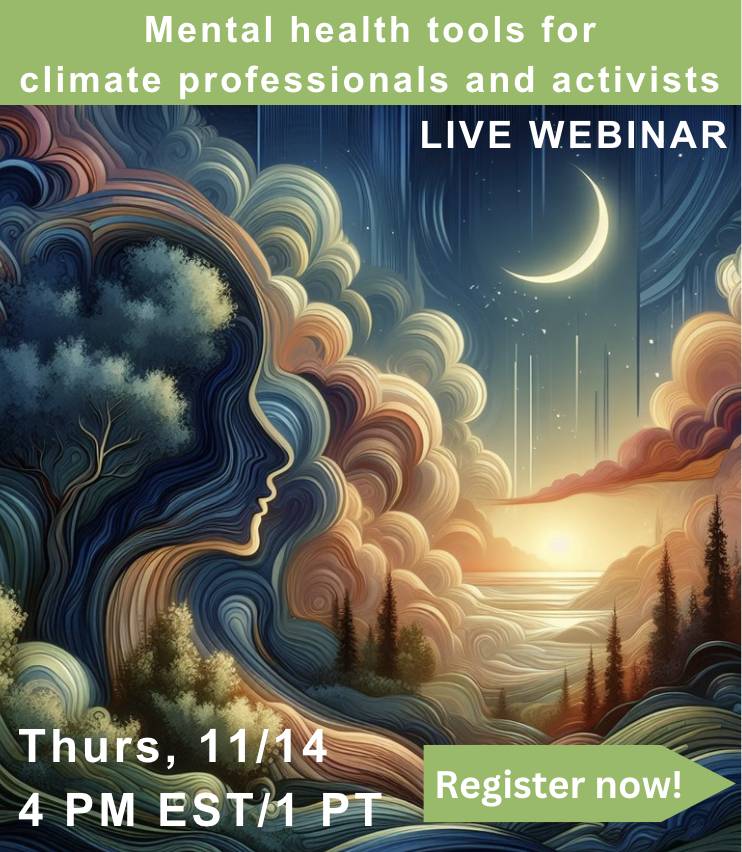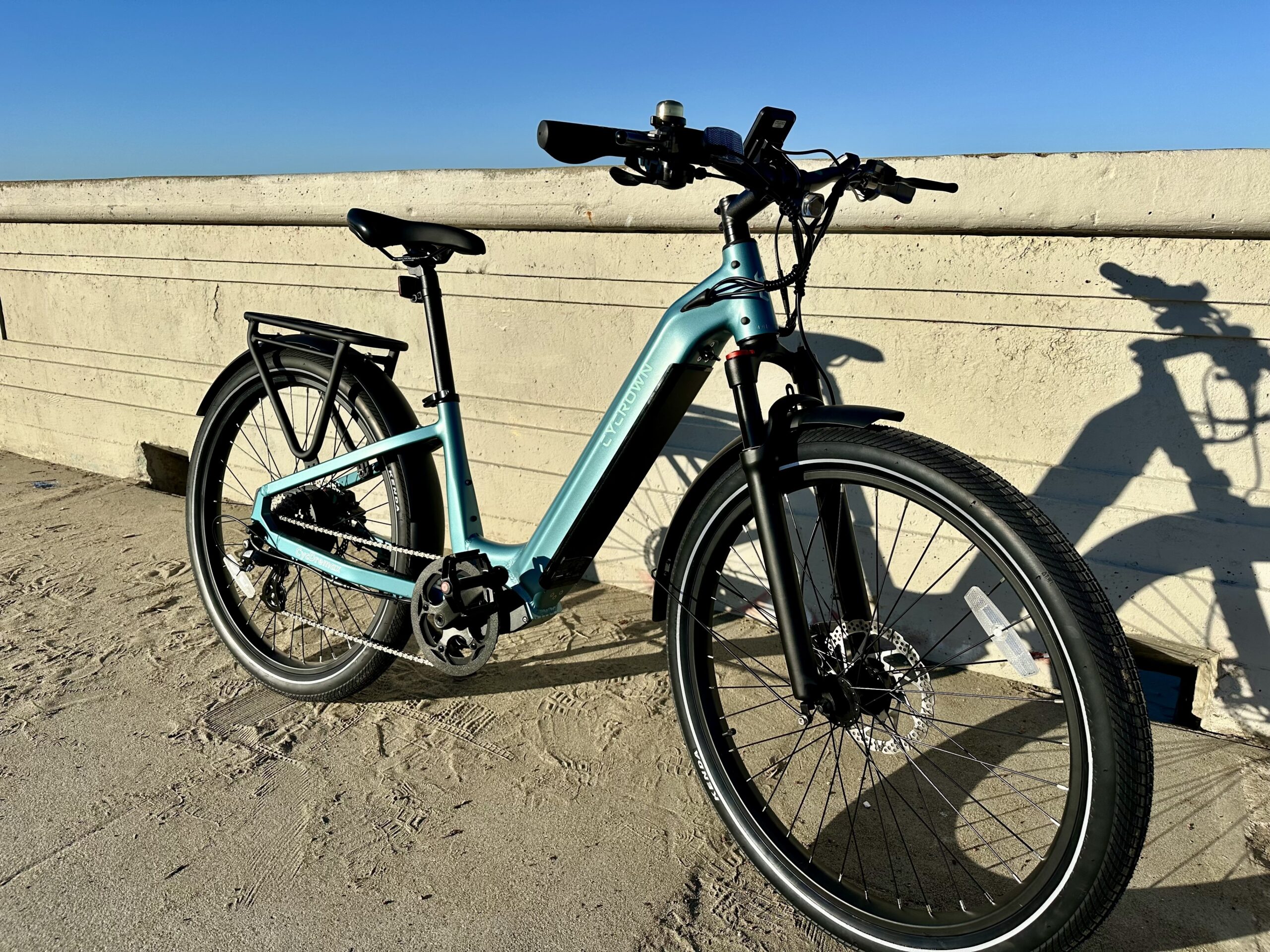Sign up for daily news updates from CleanTechnica on email. Or follow us on Google News!
With the election coming up tomorrow, I’m seeing a lot of fear out there. Some of it is very much justified. For example, businesses in Washington, DC, are boarding up to prepare for the possibility of rioting. Many people on all sides are preparing for a nasty election battle that could possibly become very physical and perhaps involve some literal battles. All of this fear and doomscrolling sucks, no matter which side of this you’re on. It’s depressing. It’s saddening.
Probably the worst thing I’m seeing in the EV and cleantech community (at least those who aren’t fans of Elon Musk’s politics) is the idea that “it’s over” if Democrats and Kamala Harris don’t win this election. The idea has some basis in fact, as Trump has made some very ignorant and negative comments about EVs, wind, and solar, and both him and his have made it clear that they want to scuttle clean energy.
But, we’d be absolute fools to assume that there’s nothing we can do if Trump does manage to get into office (legitimately or otherwise). In this article, I want to share my reasons for still having hope not only for clean technology, but for other important things that Trump and his associates want to take away should they get into office.
It Can Happen Here
Before I get to the positive, I have one thing that does need to be said: it can happen. And no, I’m not just talking about the possibility of fascism when the term was coined by Sinclair Lewis in 1935. I’m talking about Democrats losing the election or having it stolen from them.
I’ve seen many people gleefully talking about this poll and that poll, how the polls that favor Trump are bogus, and how the polls that favor Harris are the most scientific and representative polls ever seen. The sad truth is that we really don’t know what’s going to happen. Polls have been wrong, sometimes by large margins, in the past because a changing electorate can be pretty tough to get ahold of evenly to ask those poll questions.
Don’t assume that there’s no way Trump could win and have a shot at trying to implement some version of Project 2025 or whatever he’s identifying it as this week. Wishful thinking isn’t a substitute for planning.
The Constitution Is Designed To Resist A Rogue Government
The first thing to keep in mind when thinking about how to deal with a Trump win and subsequent actions against clean technologies is that the Constitution is designed to be tamper-resistant. It’s not immune to hacking and simply being ignored, of course, but there are some features that can be used to resist unlawful and illegitimate reaching beyond presidential powers to screw EVs, solar, wind, and battery technology.
The biggest one is federalism. The federal government is not superior to the states on all issues. Only within certain enumerated powers can the federal government legitimately boss states around. For everything else, the states are in charge (provided that they follow their own constitutions and don’t violate individual rights as described in the Fourteenth Amendment and the Bill of Rights that the Fourteenth Amendment imposed on the states after the Civil War).
This means that even if red states run amok polluting, taxing EVs, and trying to rig the economic game for fossil fuels, the economic pressure of states like California continuing to support clean technologies is still very real, and can be used against people like Trump.
If you want a more thorough rundown of the ways the existing system would be tamper-resistant, I’d recommend reading an excellent piece from InsideEVs here.
A Rough Election Fight Saps Political Capital
If Trump does win after an ugly, contested election, he wouldn’t get into the Oval Office politically unscathed. With significant portions of the population doubting his legitimacy, people angry over wrongs that occurred during the legal battles, and possibly anger over violence committed for Trump, he’d be jealous of a cat herder when it comes to the ease of the job.
With such limited support, it would be very difficult to get people to play ball. Congress would be tough to work with. Firing people at federal agencies and replacing them with loyalists would sap the expertise at such agencies, making them not only bad at their intended jobs, but bad at implementing Trump’s policy goals. Getting states and even the general population to willingly cooperate with federal agencies would also be a tough sell after such a thing.
Effective Resistance
Before I can talk about what to do to prevent Trump from harming clean technology in 2024, 2025, and beyond, I must first discuss a little-known fact about how he was stopped in 2020 and early 2021. It was no accident that his effort to steal the election while in office failed. There was a concerted effort by unions, business, and the Democratic Party coalition to deny him what he needed most to pull it off.
I’d recommend reading the above link, but in short, what he needed was violence. He needed for there to be riots, burning cities, and maybe even people shooting each other in the streets like there had been earlier in 2020. If that had happened, he’d have the excuse to use the Insurrection Act to crack down and “stop the steal” with force. But, absent such violence and rioting, he knew he couldn’t get away with it.
With no wind in his sails, he couldn’t go anywhere. Powerful people and even news outlets turned on him one by one when it became clear that almost nobody was going to stand behind him. The only violence he could whip up was on January 6th, but because it was his side rioting, it didn’t give him the political capital or the public support necessary to pull anything. Really, it ended up being his undoing.
Obviously, 2024 is very different. Trump is not in the White House and lacks any emergency powers that could be abused. But, if he gets back into office, he’s hoping for riots in the streets, which he has threatened to use the Insurrection Act against, building momentum for throwing away constitutional limits on his power.
Should he get into office, a key part of keeping him from destroying the system that keeps presidents from becoming emperors is to deny him the justification to use emergency powers. Protests that can be transformed into riots by agitators should be planned carefully, but it may be better to not conduct them at all, especially if blocking roads is involved.
Things like protests, riots, and violence may feel good, but we’d be better to reserve such things for legitimate acts of self-defense should a rogue administration get violent with us first (a move that would destroy any remaining legitimacy). Instead, wielding the power of states, wielding economic power, and using non-traditional forms of non-violence, such as “System D” and other counter-economics, would be better.
In short, the idea is to resist and defy without giving them what they need: the moral high ground that comes from being able to play the victim (something Trumpism is always desperately reaching for).
Eventually, an aspiring dictator facing annoying resistance that fails to make him the victim would have to either back down and keep what power he has or up the ante with his own violence. But, much like the cockroach alien in Men In Black, responding in the affirmative to a challenge of “Eat me!” can have nasty consequences.
Featured image: a screenshot from the movie Men In Black (fair use).

Chip in a few dollars a month to help support independent cleantech coverage that helps to accelerate the cleantech revolution!
Have a tip for CleanTechnica? Want to advertise? Want to suggest a guest for our CleanTech Talk podcast? Contact us here.
Sign up for our daily newsletter for 15 new cleantech stories a day. Or sign up for our weekly one if daily is too frequent.
CleanTechnica uses affiliate links. See our policy here.
CleanTechnica’s Comment Policy



